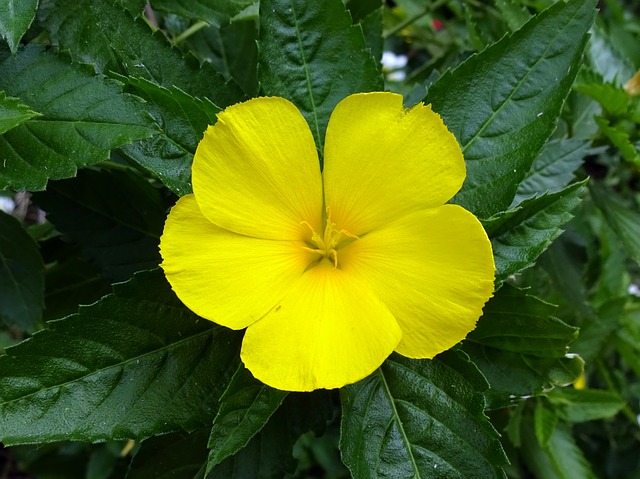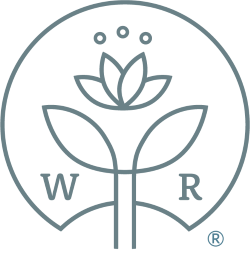Damiana Leaf

Also known as Turnera diffusa. Turnera aphrodisiaca has the same medicinal properties, whereas Turnera ulmifolia looks the same but has a different chemistry. Damiana aphrodisiaca, Herba de la Pastora, Mexican Damiana, Mizibcoc, Old Woman's Broom, Rosemary, Turnerae diffusae folium, Turnerae diffusae herba, Turnera microphyllia.
Introduction Damiana is a small shrub reaching a height of 4 to 6 feet (1-2 meters), bearing sweet-smelling, serrated leaves growing 4 to 10 inches (10-25 cm) long. Small, yellow flowers bloom in summer and are followed by small fruits with a fig-like taste. The Mayas used damiana as an aphrodisiac, but more specifically as a remedy for "giddy" love. The herb was considered more important for focusing sexual energies than for creating them. Damiana has been popularly used across the Southwestern United States and Mexico as an aphrodisiac and for asthma, bronchitis, neurosis, diabetes, dysentery, dyspepsia, headaches, paralysis, nephrosis, spermatorrhea, stomachache, and syphilis. The current edition of the British Herbal Pharmacopoeia recommends the herb for "anxiety neurosis with a predominant sexual factor, depression, nervous dyspepsia, atonic constipation, and coital inadequacy."
Constituents The leaves contain up to 1% volatile oil consisting of 1,8-cineole, p-cymene, alpha- and beta-pinene, thymol, alpha-copaene, and calamene among other chemicals. The dry matter of the leaf includes a characteristic brown, bitter substance called damianin as well as tannins, flavonoids, beta-sitosterol, and the glycosides gonzalitosin, arbutin, and tetraphyllin B.
Parts Used Leaf and leaf stems, dried.
Typical Preparations May be blended with other herbs as a tea blend, as the taste of it alone is rather bitter. It may also be compounded into an elixir, as a capsule, and in extract form.
Summary Damiana is a popular aphrodisiac for men. It has also been traditionally used by numerous people for the purpose of enhancing orgasms in women, and for asthma, depression, digestive problems, and menstrual disorders. Two US patents list damiana as an ingredient in a "thermogenic" diet aid designed to increase metabolic rate.
Precautions Teas of damiana may lower blood sugars, but tinctures do not. Since one of the traditional uses of the herb was to induce abortion, it should be avoided in pregnancy.
For educational purposes only. This information has not been evaluated by the Food and Drug Administration. This information is not intended to diagnose, treat, cure, or prevent any disease.
This information courtesy of MOUNTAIN ROSE HERBS, with full, written permission for reuse. For further traditional information concerning Damiana, please visit this excellent resource from Botanical.com. Used with full, written permission.







